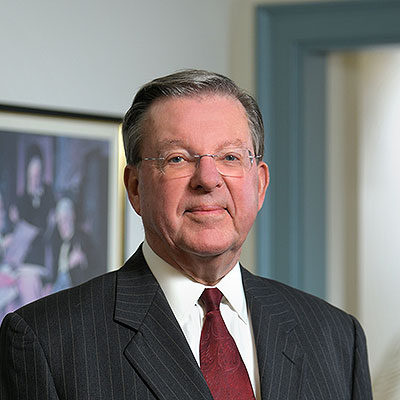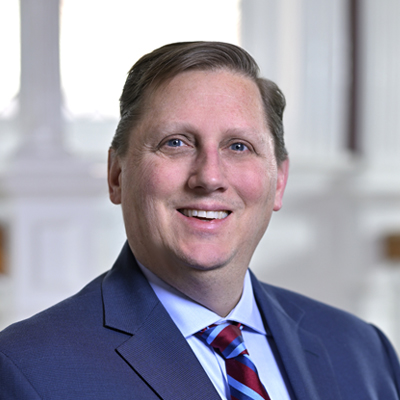Probate Lawyers in Bucks, Delaware, and Montgomery County
Probate in PA can be contentious. Establishing an estate representative is one thing. However, administering the estate to all parties' satisfaction can be difficult. So, if you're confused by the probate process, talk with a probate lawyer near you. Our law firm has offices in Doylestown, Wayne, and Norristown, PA.
What is Probate?
Probate is the legal process where a representative administers a person's estate. First, if the decedent died with a will, the will usually assigns an individual to serve as executor.
The executor then takes these items to the Register of Wills in the county where the decedent resided:
- Will
- Death certificate
- Petition for Grant of Letters
The grant of letters is the most common estate proceeding in Pennsylvania. It is an administrative proceeding that occurs when a decedent dies with a will (testate) or without a will (intestate).
Next, the registrar examines the will to confirm its validity. And finally, the person nominated as executor gets sworn in.
State laws vary significantly, and the process varies depending on the assets involved. So, hiring a probate lawyer familiar with probate law is essential.
Simplified Probate for Small Estates
Not all estates must go through a long and expensive probate process. Fortunately, Pennsylvania offers a simplified probate process for small estates. A small estate contains no more than $50,000 in assets. That total doesn't include the following:
- Real estate
- Amounts the family can collect without probate
- Amounts used to pay funeral expenses. (20 Pa. Cons. Stat. Ann. § 3102.)
The estate executor must file a written request with the local probate court to use the simplified procedure. The court may permit the executor to distribute the deceased person's assets without going through all the parts of regular probate.
Assets That Can Skip Probate
Generally, only assets the deceased person owned in their name alone go through probate. Everything else can be transferred to its new owner without probate court approval.
The most common kinds of non-probate property are:
- Any property the deceased person owned in joint tenancy with another person
- Assets for which the person designated a beneficiary
- Assets the deceased person held in a living trust
Small amounts of cash can also go to the surviving spouse, including:
- Money in Bank Accounts: The surviving spouse or close family member can receive up to $10,000 with probate.
- Wages: Probate court approval isn't necessary for wages up to $10,000.
- Life Insurance: The surviving spouse or other family member can receive up to $11,000, provided the estate's representative doesn't claim life insurance within 60 days after death.
A probate lawyer works with you to determine what assets you can obtain without probate.
Frequently Asked Questions Surrounding Probate
Here are typical probate questions. For answers to additional questions, contact a probate lawyer near you who is familiar with estate law.
What If The Person Died Without a Will?
The process is almost the same if an individual dies without a will. However, the person sworn in to administer the estate is called an administrator.
Does a Probate Lawyer Become the Administrator of the Will?
The surviving spouse or those entitled under intestate laws typically serve as an administrator. For example, courts may appoint adult children, parents, siblings, aunts, or uncles to the role.
Does Pennsylvania Require Probate?
The law requires probate if the decedent owns assets individually, including personal property and business interests. Moreover, probate assets reflect assets that pass according to the decedent's (the person who has died) will or by intestacy laws.
Courts may declare that probate is unnecessary under two conditions. First, if all assets are titled jointly with another living person. Second, if all assets pass according to the operation of law, courts. A probate lawyer can answer any questions you might have.
What is a Probate Lawyer, and Do I Need One?
A probate attorney usually handles the estate administration process following a person's death. For example, probate lawyers handle these tasks:
-
- Preparing and filing the necessary paperwork with the court
- Arranges for service to all the required parties
- Advises you on the next steps
- Accompanies you to court appearances
- Advises the executor on how to proceed in representing the estate
On the other hand, an estate attorney works with living clients, administering their client's estates. For instance, an estate attorney prepares trusts, wills, and other relevant documents.
What Are Probate Assets?
Examples of probate assets include:
-
- Checking accounts
- Life insurance
- Security accounts in the decedent's name
- Real estate titled solely in the decedent's name or as tenants in common
- Tangible personal property
- Un-cashed checks that are payable to the decedent.
After probate, the personal representative begins the process of estate administration.
What is Estate Administration?
Estate administration involves managing and distributing the gross estate. In addition, courts may hold the executor or administrator liable for any mismanagement of the estate. A probate lawyer can provide more insights into estate administration.
Administration includes the following tasks:
-
- Notify the beneficiaries and potential heirs.
- Notify banks, credit card companies, and government agencies of the decedent's death.
- Find all of the decedent's assets, estimate the value, and file an inventory of assets with the court.
- Close individual checking or savings accounts and open an estate account.
- Manage property until it is sold or distributed.
- Pay the estate's debts and taxes.
- Pay funeral expenses.
- Distribute assets.
- File final lifetime tax returns, inheritance tax returns, possible federal estate tax returns, and fiduciary income tax returns.
- Formal (through the court) or informal (through family settlement agreement) settlement of the estate.
Sometimes, administration includes having a probate lawyer represent the estate in a will contest. Additionally, a probate lawyer can handle other legal proceedings and file a final accounting with the court.
What is Ancillary Probate?
Ancillary probate is a second probate proceeding. In this case, a decedent has a property to transfer in a state other than the one handling their estate. You can learn more about ancillary probate here.
Discuss Your Options with a Probate Lawyer Near You
If you want to avoid legal issues with probate, call our law firm. We have offices in Doylestown, Wayne, and Norristown, PA. As a result, our attorneys are keenly aware of PA laws and the fine details that can go into this trying and sometimes contentious affair.
We can help answer any questions you might have about probate. So please call us at 610-275-0700 or visit our estate planning page for individual lawyers and attorneys and their email addresses.



